Impact report 2023-24
Letter from the CEO & Chair of the Board
This year, our impact report has a theme which we really believe has captured the experience of the Atlas Institute for Veterans and Families — listen, learn and lead.
When reflecting on the year behind us and where we are organizationally, I sometimes have to remind myself that we have only completed four years as an organization since our founding to support the mental health and well-being of Canadian Armed Forces (CAF) and Royal Canadian Mounted Police (RCMP) Veterans and Families. While there are still gaps to fill, I am proud of all we’ve been able to accomplish as a team.
I am confident much of this is due to how Atlas was co-created with Veterans and Families – a key element which has continuously guided our work. The ongoing intentional dialogue between Atlas and community has been an important part of how we work: the importance of the community as advisors and guides, listening to those who are closest to the issues, whether that’s the Veterans and Family members directly involved, those who provide care, or the researchers seeking to create new Canadian evidence with the goal of building greater understanding and more relevant knowledge. Listening to and learning from those closest to the issue is the first critical step to launch the outputs which eventually make their way into the public domain.
As you will read within this comprehensive report of the past year’s activities, it is important to know that our team has invested time to engage with Veterans and Family members to integrate lived experience and expertise through all the work we undertake whether through meetings with stakeholders, or input from our Cadre and research and resource development advisory groups.
As we move forward in our mandate, our team as a whole strives to be leaders through the volume and quality of work we generate in support of Veterans and Families. Some examples I am proud to highlight include our early work in moral injury that continues to grow including from a global perspective, the ground breaking studies in neurofeedback being led out of our Clinical Research team, or being asked to present at the Veterans Affairs Committee at the House of Commons as expert witnesses on our work through the Athena Project focusing on the experience of women Veterans.
Certainly, this past year we were honoured to be contacted by the Embassy of Ukraine to meet with the Her Excellency the First Lady Olena Zelenska and discuss Atlas and our work and where they could draw on our early experiences and successes to support their country in its recovery efforts from the impact of war.
The work of Atlas is not simply that of an institution, but rather of a team of highly qualified, passionate individuals who really take the mission to heart. This team shows up every day bringing their best in honour of those who have served. It is important to note that we don’t work in isolation and value the many partnerships with like-minded organizations so that we are able to amplify the work and in that the value to community. This commitment to collaboration shows in the results I are pleased to share for the 2023-24 year, results which give life to the adage that together we can go so much farther.
It is with gratitude I reflect on this journey, our growth and our accomplishments. We will continue to listen and to learn, and our commitment to Veterans and Families is to continue to lead the work to ensure the supports and services they deserve are reflective of their unique experiences and continuously accessible according to their needs.
In closing, I know that it does take a community of committed, interested stakeholders and partners to work collectively to affect real, positive and lasting change. Although we see the great strides happening in the space, I also recognize that we need to, and will do, more to ensure that Veterans and Families are supported.
In presenting this, our impact report for 2023-2024, I wish to thank you for being part of our journey at the Atlas Institute for Veterans and Families.
Regards,
Fardous Hosseiny, President and CEO
with Cal Crocker, Chair of the Board

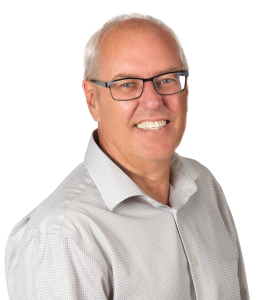

Listen
Atlas Lived Experience team listening tour
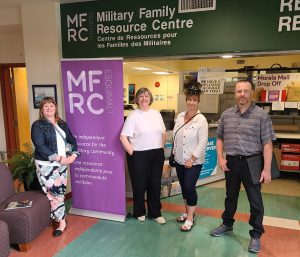
Atlas strives to weave lived experience perspectives throughout the work we do. Our Lived Experience team consisting of three Veterans and two Family members embedded as full-time staff members is a key aspect of our ability to do this.
While this helps to guide us, we recognize no five individuals can fully capture the full diversity of needs, experiences, viewpoints, successes and difficulties faced by all Canadian Veterans and Families — nor should they. In order to get that broader perspective, we need to regularly hear from a variety of community members in order to understand more comprehensively the support they themselves identify as being needed.
With that goal of engaging even deeper with community, the Lived Experience team embarked on what we call The Listening Tour. Through this, the team members from Atlas meet Veterans and Families where they are — in their local communities.
Along with creating opportunities to hear from more Veterans and Families, the tour also allows us to provide a bit of background on Atlas and some of the projects we are working on. Ultimately, however, the most important part is for us to simply listen and learn. In doing so, we can gather information that can be integrated to inform practice in support of improved care for the Veteran and Family community.
Over the past year, we have connected with people in a number of communities from coast to coast to coast, including: Iqaluit, Halifax, Fredericton, Ottawa, Kingston, London and Esquimalt. In addition to Veterans and Families, we have also made it a priority to meet with those who support them in different capacities. These meetings have given the team insights into the unique experiences of Canadians such as the Rangers and RCMP who are in isolated and northern locations, the ways in which the Navy’s experiences and subculture vary from coast to coast, and the particular effects of service on women Veterans, to note a few.
Iqaluit — May 2023
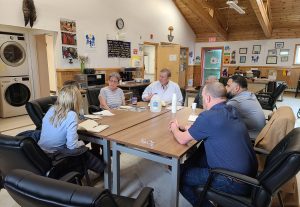
In late spring of last year, members of the Atlas Executive, Lived Experience and Partnerships and Stakeholder Engagement teams travelled to Iqaluit to attend meetings with RCMP-related public safety groups, government and policy and advocacy groups, and a service provider group.
Nunavut is the largest among Canada’s provinces and territories. Its sweeping land mass and low population density have meant that policing and providing mental health services can be complex. Boundaries between departments and jurisdictions are often blurred given shortages in personnel. The Atlas team listened to the ideas from the community and asked how to build on their strengths while supporting their ongoing mental health resource and training needs.
The Cadre: Expanding opportunities to get involved
Since its inception, Atlas has actively listened to and amplified the voices and experiences of Veterans and Family members living with posttraumatic stress disorder (PTSD) and other service-related mental health conditions. It is our belief that the mental health system can better respond to Veteran and Family needs when it is guided and informed by the voices of lived experience and expertise.
To expand our connections with the Veteran and Family community, we have developed a volunteer Cadre of CAF Veterans, former members of the RCMP and Family members. The key goals we aim to achieve with the Cadre are to:
- Enable Atlas Institute to engage and work with a larger and more diverse group, including Francophone Veterans and Families
- Improve our ability to connect with individuals with lived expertise who are available to participate in projects
Members of the Cadre are provided with opportunities to collaborate with us in a range of ways, including providing advice on issues important to the community, and informing and guiding projects, part of which is achieved through their participation in surveys, panels, webinars and town hall events.
By the end of March we had:
- 46 members involved in the Cadre
- 31 members who had participated in
- 16 projects and research studies over the past 12 months
Guided by community: Reference groups at Atlas
In September 2023, Atlas hosted its second annual in-person meeting for its reference groups. Held in Toronto, the meeting brought group members together to provide strategic advice to guide the Atlas Institute’s work, share their experiences and expertise on PTSD and related mental health conditions, network with like-minded individuals, and expand the reach and presence of the Atlas Institute.
Ten reference group members joined the day-and-a-half meeting in person with a further eight members joining virtually. The meeting was focused primarily on updating the reference group members on the work at Atlas over the past year, as well as on beginning the conversation to help guide our projects and areas of focus over the next year. In breakout sessions, participants discussed current priorities at Atlas and brainstormed potential topics for future research and outreach. Meeting participants also had the opportunity to socialize, network and share knowledge.
This meeting was the last meeting for many reference group members whose three-year terms were ending. These members were acknowledged for their invaluable contributions and thanked for volunteering their time with Atlas to advance its mission and mandate.
Revising the structure: Focusing and strengthening
In November of 2023, Atlas launched a revised reference group model, shifting into a single Strategic Reference Group from the original model of four distinct groups of Veterans, Family members, service providers and researchers.
We first launched the Atlas Institute’s four inter-related groups in October of 2020. At that time we were a brand new organization with a very small stakeholder network. Three years later our current operational state looks very different from what it did when we put out that first call for reference group members to support and guide the work of the new organization.
Today, Atlas not only has Veteran and Veteran Family expertise embedded within our organization with five team members offering strategic advice based on their lived experience, but we are also now connected with a network of service providers, in addition to an expanded board of directors. Over the past three years, Atlas’ reference groups have been key to connecting us into communities across the country. They have provided critical advice to Atlas – both at a project level and across the organization.
As we wound up the cycle of our first cohort, our need to continue to have reference groups didn’t change. The voices of lived and living experience continues to be integral to ensure that we have a connection into Veteran and Veteran Family communities across Canada. However, as Atlas has evolved, what we needed from our reference groups shifted. Our model shifted based on what we’ve heard from current members and current and emergent Atlas needs.

Learn
Making military culture accessible
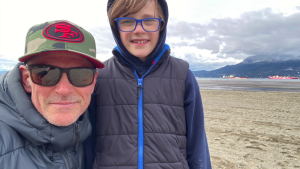
A crucial part of building trust between Veterans and Veteran Family members and their health care providers is for providers to have an understanding of military culture. To help with this, we are developing a series of resources to support health care providers to not only increase their knowledge in military culture but also to understand its influence on Veterans and Veteran Family health care needs, and how to adapt care to support those unique needs.
In order to better understand what Veterans, Veteran Family members and health care providers feel should be included in these resources, we hosted three engagement sessions and sent out an online survey.
In total, we engaged with:
- 137 participants
- 25 through virtual sessions
- 112 via an online survey.
We’ve summarized key themes that arose in a summary report of these engagements and will be using what we heard to address gaps in existing military culture resources for health care providers with the goal of meeting the outstanding needs identified by those with whom we engaged.
Enhancing mental health care service delivery
Atlas is committed to a service system in which Veterans and Veteran Families can access the best possible mental health care no matter where they are in Canada. We have been developing a suite of services to support mental health professionals and organizations to implement evidence-based practices and what we know works.
The development of our suite of services started with training. Over the last three years we have trained approximately 740 service providers in various evidence-based therapies. Contributing to that total are our trainings from this year which include:
Prolonged exposure therapy
Workshop (4 days) — 33 attendees
Weekly group consultation (12 weeks) — 14 attendees
Cognitive processing therapy
Workshop (4 half-days) — 132 attendees
Weekly group consultation (20 weeks) — 32 attendees
To further expand our training offerings to include self-paced online courses for mental health professionals, we have leveraged the power of partnership. These self-paced trainings, which will be available by summer 2024, include:
Trauma-exposed professionals training
In partnership with: Wounded Warriors Canada
We partnered with Wounded Warriors Canada to develop a program called Introduction to trauma-exposed professionals: TExP1. This is a five-hour course that focuses on caring for trauma-exposed professionals (TExPs) such as CAF members and public safety personnel. It includes information on the impacts of service on mental health and well-being and culturally specific clinical approaches. In addition, we are working with Wounded Warriors on A practice-based approach to self-care, a one-hour program that offers pragmatic approaches to self-care for clinicians who work with TExPs.
Managing problematic anger
In partnership with: Phoenix Australia
Managing problematic anger is an eight-hour course developed in collaboration with Phoenix Australia and delivered in Canada by Atlas. This course provides clinicians with the skills to assess and treat military and Veteran populations experiencing problematic anger. It draws on theoretical models and empirical research to help clinicians build an “anger toolkit” that can be used in a tailored manner to address a client’s needs.
While training is one implementation strategy we use, this fiscal year has been spent on developing new programs to enhance our wraparound approach. These programs, which are set to launch in 2024-25, include:
Mental health consultation program
Open to licensed and registered providers providing mental health care to Veterans and Veteran Families, this program will enable Canadian mental health providers to connect with expert consultants with experience in Veteran and Veteran Family care. At no cost to providers, the mental health consultation program aims to meet providers’ need for ad hoc, tailored, Veteran- and Veteran Family-specific advice and learning.
Evidence-based therapy community of practice
The purpose of the community of practice is to enhance care for Veterans and their Families living with PTSD and related mental health conditions by providing group connection opportunities for service providers who value the delivery of evidence-based therapies with fidelity and effectiveness.
Mapping out the role of Atlas in public policy
Atlas began in 2023 to map out its role related to public policy influence, building on the public policy-related criteria of our mandate. Recognizing that formalizing a role in the public policy space requires a firm grasp on the current landscape, Atlas initiated three interrelated foundational public policy projects to identify existing policies and associated gaps, and to set priority areas for Atlas that would result in high impact for Veterans and Families:
- A public policy scan of academic and grey literature specific to mental health and well-being policies and policy recommendations that impact Veterans and Families.
- An engagement process consisting of a series of conversations with stakeholders across Canada with similar mandates as intermediary organizations.
- An internal public policy framework that will guide Atlas staff on how public policy work will occur and where Atlas will position itself, based on Canadian and international evidence and leading practices.
For the engagement process, 14 virtual engagement conversations were held over a 10-week period with senior leaders of organizations working in the Veteran and Family mental health space. During these engagements, the project team asked a series of questions related to the organizations’ processes for conducting public policy work, their organizational structures, and their current and future work related to Veterans and Families.
Information extracted from these conversations has been compiled into a report that highlights common practices of these organizations when doing public policy work, approaches they have found effective, as well as their recommendations for priority areas in Veteran and Family public policy.
Learn more and download the report at atlasveterans.ca/public-policy-engagement-report.
Annual partnership satisfaction survey
In March of 2024, Atlas invited partners to participate in our annual partnership satisfaction survey. The purpose of the annual survey is to understand how Atlas can continuously improve our ability to meet the needs of our partners in general. The survey drew responses from 54 participants from across 25 projects and 90% of our partners identified they were satisfied with their partnership with Atlas.
“I always feel that my input is valued and listened to. I have seen firsthand how my input has led to change. I appreciate how Atlas works hard to include diverse perspectives in all that it does.”
Celebrating 150 years of the RCMP
In recognition of May 23, 2023 being the 150th anniversary of the RCMP, Atlas produced a series of five videos honouring and acknowledging the many roles RCMP Veterans and their Families play. Titled We Serve, the campaign highlights that when someone puts on a uniform to serve, while the uniform might be retired at some point, the commitment is forever, as well as recognizing how loved ones of RCMP members also serve in their own unique way. The videos are available on our website at atlasveterans.ca/rcmp150.
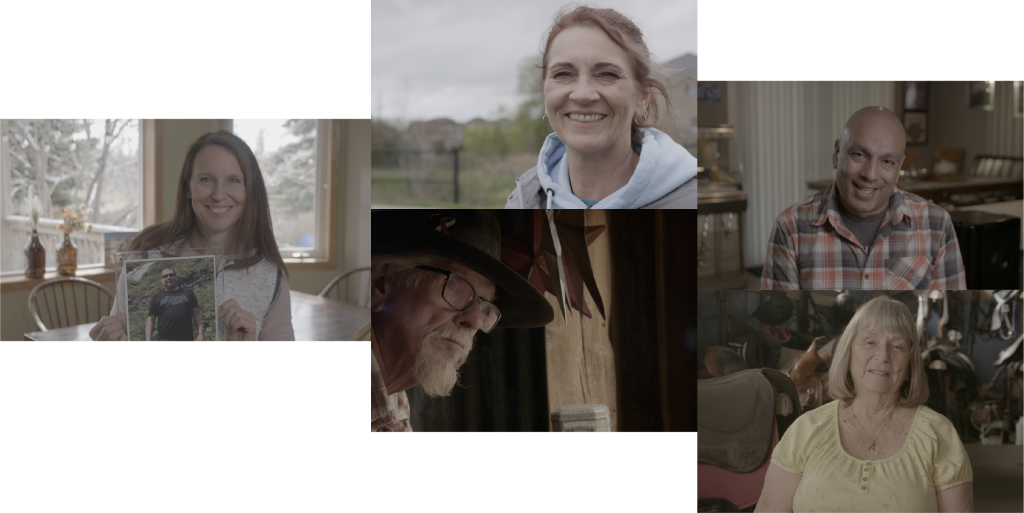
Inclusive, diverse, equitable and accessible: Building and implementing our three-year IDEA strategy
![Shauna Mulligan — CAF Reserve, Corporal [Ret’d]](https://atlasveterans.ca/wp-content/uploads/2024/06/shauna-mulligan-ir-2024-170x300.jpg)
The creation of the strategy involved many points of engagement, including leadership from the Atlas Executive team, internal IDEA committee as well as the input of the Atlas Institute’s National Strategic Advisors (from the Lived Experience team). Representatives of the Veteran and Family community and Strategic Reference Group members also provided guidance, as did staff through one-on-one interviews and an online staff survey. We intentionally consulted Indigenous community members in the creation of this strategy, in addition to other population groups that historically or currently experience exclusion or marginalization.
The now-complete strategy is organized across four main pillars: Commitment and capacity, culture and competence, our workforce, and our work. The first three pillars establish a variety of internal-facing goals for Atlas and associated actions. These focus on work for Atlas as an organization and employer and for staff to implement. The fourth pillar outlines external-facing goals and actions that are focused on meeting the diverse needs of our stakeholder community (including Veterans and Family members), which require support, collaboration and coordination between Atlas staff, including our National Strategic Advisors and our community — including from our Strategic Reference Group, service providers and researchers — to ensure their success.
“I think Atlas is serving an important role in providing space that brings together numerous national groups to engage with broad challenges facing diverse sectors.”
Lived experience as true expertise
Atlas is committed to being a leader in equitable, inclusive and relevant research and to mobilizing knowledge to make it accessible to the broader community. We know that Veterans and their Families have the lived and living expertise that is vital to conducting research that is meaningful and successful. That’s why Veterans and their Families are our partners and collaborators in every part of our research and knowledge mobilization processes.
We act on their recommendations for what topics and concerns should be priorities for research. We ask for their guidance throughout our process, whether research or mobilizing the knowledge which emerges. This spans the continuum from creating research questions, study aims and designs, to launching recruitment and knowledge mobilization activities. This collaborative approach ensures that all research conducted or supported by Atlas is responsive to the community’s unique needs, goals and values.
We also make sure it doesn’t end there. Our intention is that research informs not only decision-makers but also is able to be shared in ways that will make a tangible and real difference in the lives of Veterans and Families. This is why we also have a focused knowledge mobilization arm at Atlas. Here, evidence is translated into user-friendly information and resources that can be readily accessed by members of the Veteran community. Throughout this process, Veterans and Family members are our partners and co-developers, by participating in advisory groups that provide invaluable guidance on how to bring these resources to life in a manner that will be the most meaningful to their community.
Highlights of projects from the past year in which advisory groups have supported the team at Atlas include:
The Athena Project
Led by the Applied Research team at the Atlas Institute, the Athena Project is an initiative dedicated to research and building connections in support of women Veterans’ well-being.
As part of the work of the Athena Project, in May of 2023 the Atlas Applied Research team convened a working group of women Veterans of the CAF and RCMP to support the design of a new study on women Veterans’ health and well-being needs.
Bringing women Veterans and women researchers together to collaborate on new research, the group shaped the research questions, the instruments/measures (questions) included in the survey and the study recruitment plan. The working group’s contributions were essential in designing the study, which is collecting data on women Veterans’ health care needs and access during and after service and examine the impact of in-service experiences on post-service well-being.
Research conducted through the Athena Project at the Atlas Institute endeavours to address the current gaps in knowledge and to provide actionable recommendations that can make tangible differences in the lives of women Veterans in Canada by informing policy, programming and supports specifically designed to address their needs and experiences.
Achievements to date
- Collaborated on the development of a study that will investigate the unmet health and well-being needs that women experience during and after service and generate new evidence, expected in Fall 2024, on:
- Prevalence of mental and physical health conditions in women Veterans
- Experiences of health care during and after service, including sex-specific health care
- Associations between women’s access to health care services and their well-being
- Determinants of health that interact and intersect to inform the well-being of diverse women Veterans
- Facilitated working group members’ submission of a written brief to the Standing Committee on Veterans Affairs in support of its study of the experiences of women Veterans
- Represented at CIMVHR Forum 2023 by five Athena Project working group members who participated as delegates
- Initiated international engagement with aligned researchers in the United Kingdom and early conversations regarding research collaborations
Our early work with the Athena Project demonstrates the degree to which women Veterans are invested in supporting research and the genuine commitment they have to improve women Veteran’s well-being. Through this community-engaged research model, the intention is to contribute novel evidence and insight into previously underexplored aspects of women’s experiences in and out of service. Read more about the new study and find out how to participate, under research highlights section.
Atlas presents to the Veterans Affairs Standing Committee
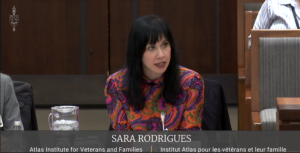 On May 4, 2023 Atlas Deputy CEO MaryAnn Notarianni and Dr. Sara Rodrigues were invited to testify to the Standing Committee on Veterans Affairs as part of the committee’s study of the experiences of women Veterans. Their presentation showcased the commitment at Atlas to working in collaboration with Veterans and their Families on research, knowledge mobilization, implementation projects and events, using meaningful and authentic engagement as a fundamental principle and component of the approach to work at Atlas. They also spoke about how women Veterans’ well-being is a priority area for Atlas and discussed the working group convened to support new research on the topic within Atlas.
On May 4, 2023 Atlas Deputy CEO MaryAnn Notarianni and Dr. Sara Rodrigues were invited to testify to the Standing Committee on Veterans Affairs as part of the committee’s study of the experiences of women Veterans. Their presentation showcased the commitment at Atlas to working in collaboration with Veterans and their Families on research, knowledge mobilization, implementation projects and events, using meaningful and authentic engagement as a fundamental principle and component of the approach to work at Atlas. They also spoke about how women Veterans’ well-being is a priority area for Atlas and discussed the working group convened to support new research on the topic within Atlas.
Research priorities identified and funded through new RFP process
Atlas has employed various strategies in the past four years to refine our priority areas. These methodologies encompassed a thorough research and knowledge gap analysis, aiming to identify gaps within the existing literature and knowledge dissemination landscape. Additionally, our engagement with the community was facilitated through our Lived Experience team and reference group members consisting of Veterans, Veteran Families, researchers and service providers.
Atlas is committed not only to advancing its priorities but also to fostering research capacity throughout Canada and the Five Eyes. Notably, our funded research projects are predominantly community-driven.
This past year, the Atlas Lived Experience team proposed 10 potential research project topics. These topics were reviewed by reference group members and a survey was crafted for ranking purposes. Subsequently, three distinct topic areas emerged as finalists: one centred on the well-being of CAF Veterans, another on the well-being of Veteran Families, and a third on the well-being of retired RCMP personnel.
Suicide prevention resources
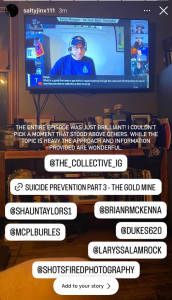
The Veteran and Veteran Family community is greatly impacted by suicide, with the risk of suicide for Veterans 1.4 to 1.9 times higher than in the general population. Furthermore, Families are significantly impacted when their loved one is experiencing suicidal thoughts or behaviours. Veterans and Families have long identified suicide prevention as a priority and emphasized the need for additional supports for mental health and well-being.
In recognition of this, along with the knowledge that early intervention and faster access to support can improve outcomes, the Atlas collaborated with the Centre of Suicide Prevention and an Advisory Committee of Veterans and Families to co-create a series of resources that reflected their unique experiences and needs. The resources include information, tips and strategies, and guidance on where the access supports:
- Toolkit for Veterans
- Toolkit for Family Members
- Conversation guide
- Conversation guide wallet card
The Veteran toolkit looks at understanding suicide in Veterans, actions to take if someone sees warning signs in themselves or loved ones, and strategies to build resilience and help reduce risk among others. There is also a toolkit for Family members that includes not only practical strategies to support their loved one, but also information and tips on self-care and for managing their own mental health. These are supported by a conversation guide that works through how to talk to someone who might be experiencing suicidal thoughts and behaviours, along with a wallet-sized help card that provides key pointers and information about direct supports for Veterans in crisis.
Resources are now available to download and print at atlasveterans.ca/suicide-prevention.
MindKit: Resources on posttraumatic stress injury for youth in Veteran Families

Many youth who have loved ones who serve or have served in the military or RCMP have experienced living with a parent with a PTSI or OSI. The impact on young family members can often be overlooked. To fill the gap around educational resources on PTSI for young people in military and Veteran Families, Atlas launched a new website, MindKit.ca, created for and with young Veteran Family members who live with the impact of their loved
one’s PTSI.
MindKit.ca is filled with youth-friendly tools, strategies and downloadable resources as well as real-life stories from children of Veterans. The website features a web comic, videos, audio clips, interactive tools and hands-on coping strategies to support youth whose lives have been impacted by their Family member’s mental health injury. All resources were co-created with a youth advisory group and subject matter experts.
First Nations, Métis and Inuit Veteran webpage: Recognizing the contributions of Indigenous Veterans
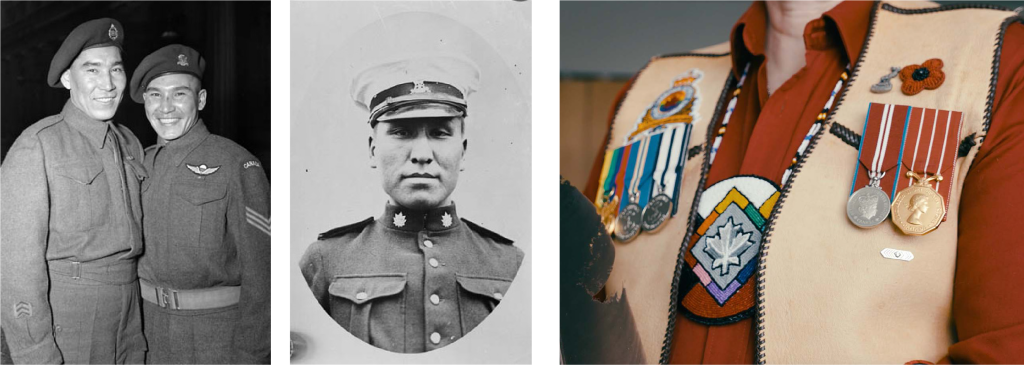
The First Nations, Inuit and Métis Veteran webpage was brought to Atlas as a recommendation from a Sahtu Dene First Nations Veteran from the Princess Patricia’s Canadian Light Infantry with expertise in First Nations advocacy and policy development — notably, as an advisor to Truth and Reconciliation Commission chair The Honourable Murray Sinclair.
Highlighting the need for mental health-related resources that are specific to the unique experiences and needs of First Nations, Inuit and Métis Veterans and Families — and the importance of the role of Indigenous Veterans’ culture in their own healing — with the guidance from two Indigenous Veterans, it was recommended that a webpage be created to honour and recognize Indigenous Veterans as well as to house future resources.
The website was published in February 2024, featuring videos of Indigenous Veterans and also provide historical highlights on the unique and significant contributions that Indigenous Veterans have made as part of their service in the CAF.
We are now actively looking to engage with First Nations Metis and Inuit Veterans and Families who may be interested in co-creating resources specific to the unique mental health knowledge needs of First Nations Metis and Inuit Veterans and their Families.

Lead
Clinical Research
Neurofeedback for PTSD webinar
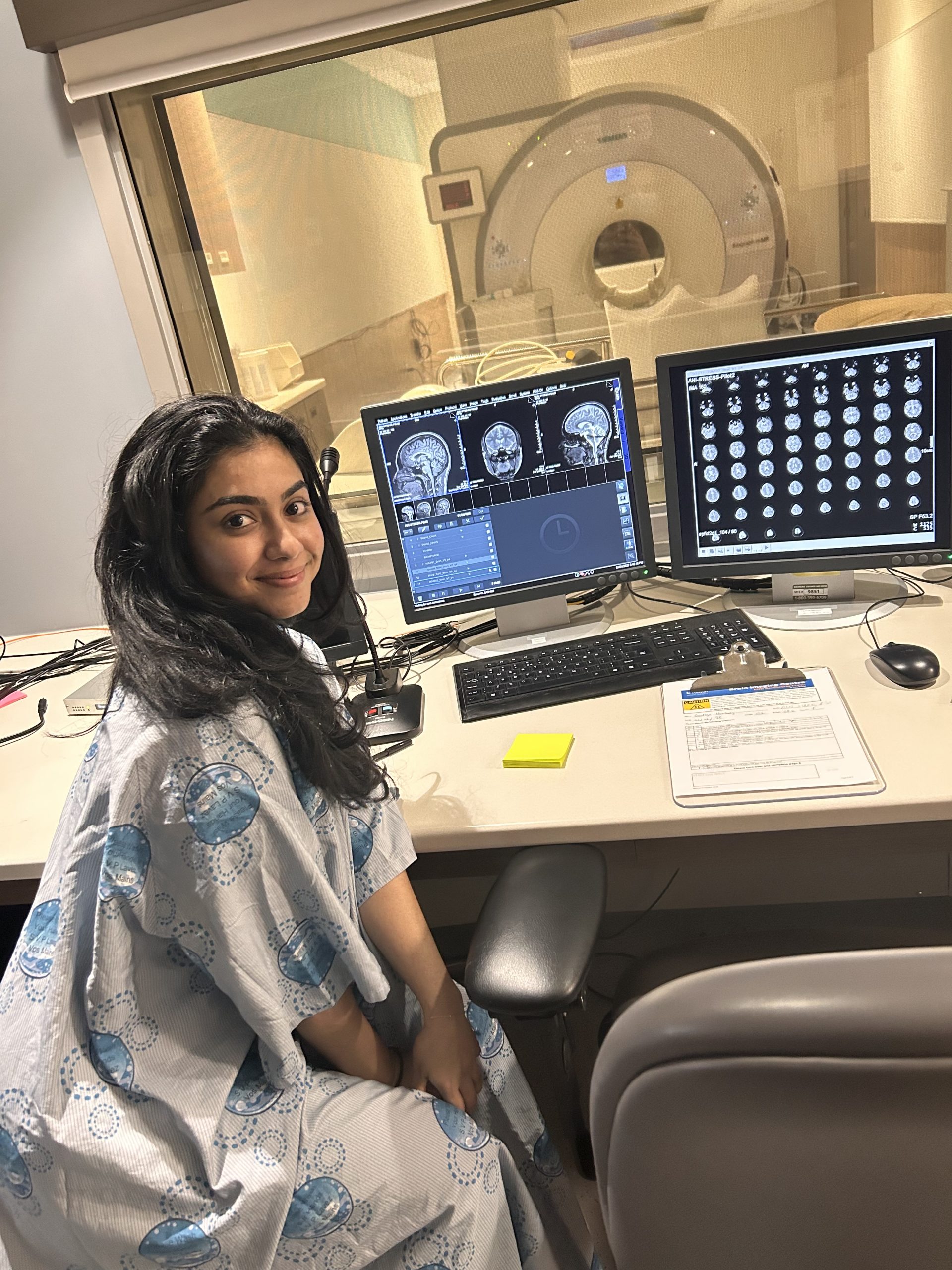
Atlas prioritizes research that aims to understand PTSD and other mental health disorders that are prevalent among Veterans and active-duty military members.
One area of focus is the Clinical Research team’s work to develop novel treatment interventions such as neurofeedback for trauma and stressor-related disorders.
During PTSD Awareness Month, the Clinical Research team led a neurofeedback webinar entitled Neurofeedback: A promising new treatment for PTSD. The webinar featured a panel of experts and people with lived experience discussing neurofeedback and its use in treating PTSD-related symptoms. The webinar took place on June 1, 2023 and had 150 attendees.
In addition to the webinar, Atlas launched a webpage providing key information on neurofeedback, such as its use, accessibility and relevant research. A fact sheet and lay summary of recent publications conducted by the Clinical Research portfolio are also available on the webpage, found at atlasveterans.ca/neurofeedback
The Royal’s Research Week Discovery Fair
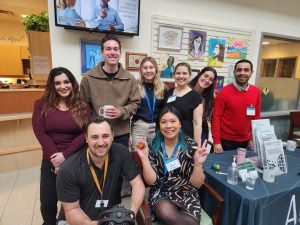
The Clinical Research portfolio was invited by the Institute for Mental Health Research (IMHR) to host an information booth at The Royal’s 2024 Discovery Fair — Research is Care event, which was attended by 60 people in total. The team presented their work on current studies related to neurofeedback and minority stress, as well as offering live demonstrations of real-time neurofeedback using an EEG electrode system. The event offered Atlas the opportunity to educate and inspire future researchers and clinicians within the field of mental health.
World Congress of Psychiatry Conference 2023
The World Congress of Psychiatry Conference offers participants the opportunity to examine and discuss crucial issues related to psychiatry and mental health. At the 2023 conference, Dr. Andrew Nicholson, Atlas Director of Clinical Research, was invited to chair a scientific session titled Emerging neurofeedback treatments for psychiatric disorders: Evidence from mechanistic studies and randomized controlled trials, which was attended by more than 200 people. He also provided an oral presentation titled A tale of two targets: Differential effects of posterior cingulate cortex and amygdala-targeted fMRI neurofeedback in PTSD.
By attending this conference, Atlas was represented as a key player within the mental health space. These presentations highlighted the ways in which our research has significantly contributed to the knowledge base of novel mental health interventions, as well as illustrating our strong understanding of the unique mental health challenges that Veterans and active-duty military and their Families face.
Applied Research
New study launched: Women Veterans’ unmet health and well-being needs
The Atlas Applied Research team has launched, as part of the Athena Project, a new study on women Veterans’ unmet health and well-being needs. The goal of this study is to examine the association(s) between unmet health and well-being needs in service and mental health outcomes for women Veterans of the CAF and RCMP.
Of particular interest in this study is access to health care during and after service, access to sex-specific care during and after service, and mental health outcomes (e.g. symptoms of anxiety, depression, PTSD) as well as the situational (organizational stressors, institutional betrayal) and behavioural (coping) factors that may influence that association. This study was designed in collaboration with women Veterans and can be completed at Women Veterans’ Health Survey (qualtrics.com).
Research Partnerships
Two piloted co-Principal Investigator models with lived experience
The Atlas Institute has launched a novel model to include lived expertise as co-Principal Investigators (co-PIs), piloted within two research projects.
The first study aims to understand the unique challenges related to military culture that the Families of CAF members often face, including relocations, prolonged separations and heightened awareness of the serving member’s safety.
The study focuses on adult children of CAF Veterans, who represent an understudied population and a significant gap in our knowledge of how children of military Families adapt and experience resilience and how these capacities may be sustained through adulthood.
The second study’s aim is to explore how people serving in specialized military units make sense of the personal impacts of service and negotiate belonging, status, group and personal resilience and well-being.
The lived expertise inclusion not only enhances the relevance and applicability of the research but also ensures that the voices and insights of those directly affected by the concepts being studied are central to the process.
Along with its challenges, barriers and opportunities, having co-PI with lived experience in research enriches the study by offering first-hand insights and perspectives. Their engagement ensures that the research remains relevant, empathetic and culturally sensitive, fostering meaningful outcomes and potential community impact.
International collaboration
The assessment and measurement of moral injury and moral distress: Atlas hosts internationally attended webinar
There is growing interest in integrating moral injury and moral distress into clinical practice, research and community settings. Yet, this surge in interest is met with challenges regarding the measurement accuracy of self-report scales aimed at capturing these constructs. Considering the urgent need to identify and address moral injury and moral distress, it is imperative to determine which tools are most effective and contextually appropriate for distinct population groups, such as Veterans.
In early March 2023, Atlas as a convenor of the community of practice (CoP) hosted a webinar on the assessment and measurement of moral injury to showcase findings from a recently published systematic review conducted in collaboration with the Canadian Moral Injury Research Community of Practice. The webinar brought together a panel of experts and people with lived experience for a conversation about the importance of recognizing moral distress and moral injury, shared highlights of existing research on the quality of measurement tools for moral injury and moral distress, and provided leading recommendations related to the application of these tools in research, clinical and community settings.
The panel discussed the impact of moral injury and moral distress on the well-being of Veterans and how assessing moral injury and moral distress provides important insights to help guide service providers’ approach to working with Veterans and their Families, as well as the landscape of tools, scales and instruments that exist to assess moral injury and moral distress and which are the most appropriate for use in research, clinical and community contexts. Additionally, the panel engaged in a Q&A session during the webinar to address audience member questions.
In total, there were more than 250 in attendance from an international audience. Watch the webinar at atl-as.ca/moral-injury-webinar-2024.
Exploring collaboration: Ukrainian delegation visits Atlas
In September 2023, Atlas was honoured by the visit of the First Lady of Ukraine, Olena Zelenska, leading a delegation to explore international leadership in supporting former military personnel and their Families in restoring their mental health and well-being post-conflict.
As part of the visit, a signing ceremony took place to formalize a memorandum of international Veteran and Family mental health partnership (MoU) between the Ukrainian state institution “Veterans Mental Health and Rehabilitation Center ‘Lisova Polyana’ of the Ministry of Health of Ukraine” and Atlas. The MoU formalizes cooperation between the two organizations in Canada and Ukraine to explore possible collaborations for research, knowledge exchange and capacity-building in the sphere of mental health to best support people in Ukraine who have been impacted.
Supporting the awareness, adaptation and joint development of information and psychoeducational mental health and well-being resources for Veterans and their Families, as well as for the professionals who support them, is a key aspect of the collaboration. As Atlas has cultivated a robust network of partnerships nationally and internationally to reduce silos and foster knowledge exchange around best practices for Veteran and Family mental health, this MoU aligns well with our mandate. One of our initial steps has been to establish regular dialogue and the means to effectively communicate applicable research findings and best practices between Ukrainian and Canadian mental health professionals and researchers. Atlas is well-positioned to inform and advise on efforts to support the use of best-practice standards and protocols for quality mental health care delivery in Ukraine.
Work has begun to rapidly bring the collaboration together. Within the months of November and December 2023, Atlas was actively engaged in collaborative efforts with our Ukrainian colleagues. A series of three roundtable discussions were conducted to share expertise and insights. The initial roundtable, led by Fardous Hosseiny and MaryAnn Notarianni, featured a comprehensive 1.5-hour presentation on the Conceptual Framework to guide the implementation of best and next practices in services and supports for Veterans and their Families (found at atlasveterans.ca/conceptual-framework). Approximately 30 government officials and practitioners attended and a lively Q&A session followed.
The second roundtable focused on neurofeedback and exploring novel treatment interventions for PTSD, presented by Dr. Andrew Nicholson. Although a cyberattack in Ukraine on December 12 temporarily disrupted Internet access for roughly half of the Ukrainian population, the presentation reached around 35 attendees, predominantly comprised of psychiatrists and psychologists.
Following this, Atlas presented a third roundtable on the clinical presentation and psychiatric management of PTSD, led by Dr. J Don Richardson, Medical Director at Atlas. Despite challenges, including air sirens during the presentation and continued Internet disruptions due do the aforementioned cyberattack, approximately 30 psychiatrists participated and an engaging Q&A session ensued.
The collaboration with Ukrainian officials and Lisova Polyana holds immense promise for advancing mental health initiatives for Veterans in both countries.
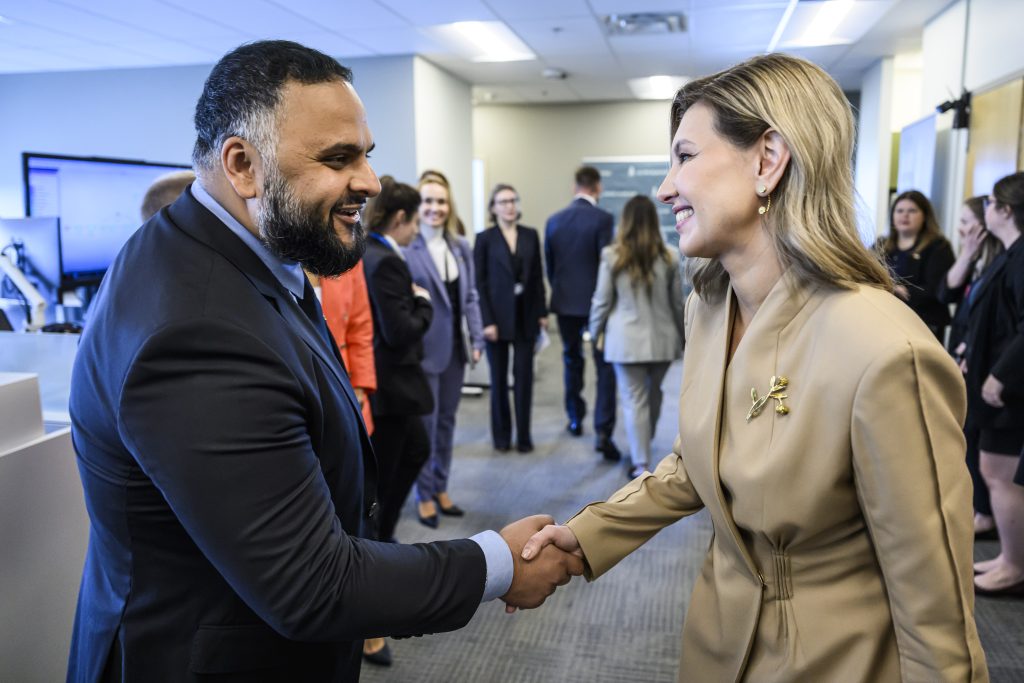
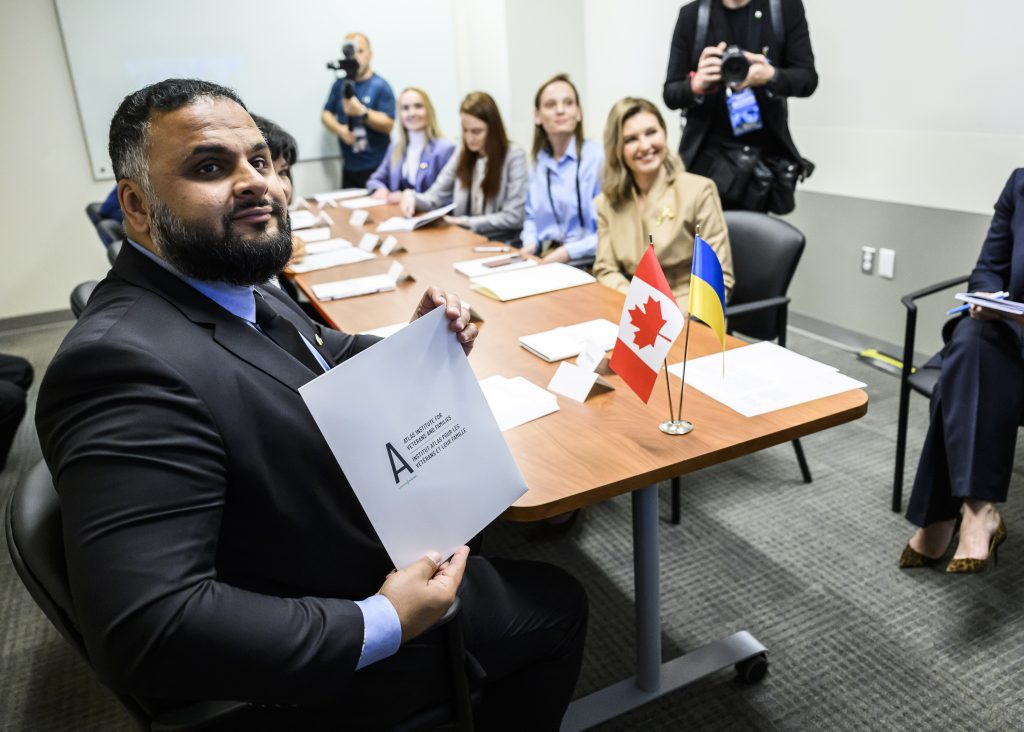
“Together, we are looking to explore opportunities to collaborate that will allow
Lisova Polyana to support Veteran and Family mental health in Ukraine, informed by the work Atlas is doing. We believe that sharing experiences and knowledge related to Veteran and Family mental health systems of care can support the restoration and development of services across Ukraine’s health care system, and that this will position them for that long road to recovery.”
Fardous Hosseiny, President and CEO, the Atlas Institute for Veterans and Families
Five Eyes Mental Health Research
Atlas is proud to continue its participation in the Five Eyes Mental Health Research Innovation Collaboration (MHRIC). The MHRIC is an international consortium of thought leaders and experts from the Five Eyes nations (Australia, Canada, New Zealand, United Kingdom and United States) focused on the advancement of mental health research to inform policy and service provision to improve the lives of military personnel, Veterans, and their Families across the Five Eyes nations.
The MHRIC generally meetings once a year to connect on priorities and emerging issues relevant o military, Veterans and Families across the Five Eyes countries. The MHRIC works towards producing high-level evidence-based commentaries and research papers. As members of the MHRIC, Altas’ President and CEO, Fardous Hosseiny, and Deputy DEO and Executive Vice President, MaryAnn Notarianni, have informed outputs for the MHRIC which will soon be accessible through a forthcoming MHRIC website, and both have contributed to subcommittees, including a committee focused on efforts related to Ukraine and a committee on knowledge translation / knowledge mobilization, which Atlas in co-leading.
Spotlight
Peer support
New resource maps peer support for Veterans across Canada
While peer support is widely practised in military and Veteran populations to help with recovery from service-related injuries as well as with adapting to post-service life, it can be challenging to find the peer support programs and services that are available to Veterans and their Families across Canada.
In response to a growing need to access this specialized support, Atlas launched an online directory and interactive map of Canadian peer support services for Veterans and their Families. The data used to create this resource was collected by the Canadian Institute for Public Safety Research and Treatment (CIPSRT) and shared with Atlas.
Until now, the extent of Veteran peer support activities has not been documented in Canada, nor have there been guidelines and standards in place to support these activities specific to this particular community. Yet, we know that peer support has been shown to be effective in promoting well-being in a variety of settings. What makes it particularly an area of interest is that we know as part of their service, military personnel are trained to support each other and that mutual support ethic persists into life after service with peer support often occurring spontaneously among Veterans. At Atlas, through our engagement with Veterans and their Families we have repeatedly heard that peer support is an important component of their recovery journey. This information guided our efforts to create a useful tool that ensures access to the Canadian peer support system.
The interactive webpage was guided by an advisory committee comprised of individuals across Canada who work or have worked in the field of peer support Veterans and their Families at the national, provincial and local level. It provides both a map and list view that details where services are located and which services are offered anywhere in the country.
Developing best practice guidelines for peer support in Veterans and their Families
Atlas and the Canadian Institute for Public Safety Research and Treatment (CIPSRT) are also collaborating on a national network that is developing best practice guidelines to support the provision of peer support to Canadian Veterans, public safety personnel and their Families. This network consists of 43 members from coast to coast to coast. Currently there is not an official governing body or standardized guidelines that are specific to peer support for Canada’s Veteran community.
Standardization in peer support delivery will help to ensure consistency in matters such as training, expectations on peer supporters and the ability to evaluate the quality of the service. The advancement of best practice guidelines for providing peer support is central to this work, as well as ensuring a space for connecting peers and supporters, and promoting knowledge about the topic of peer support.
- To date, six PSCN meetings have been held, 12 evidence summaries have been completed and a consensus-building Delphi survey has been completed.
- We aim to have the final draft of these guidelines ready for dissemination and implementation by the end of summer 2024.
Veteran Family Virtual Summit 2024: Empowering Families through knowledge, community and hope
Building on the success of the first-ever national summit focusing on the needs and experiences of Veteran Families, Atlas hosted the second annual Veteran Family Virtual Summit in January 2024.
This event focuses specifically on Veteran Families because the cost of service impacts not only those who have been members of the CAF and RCMP but also their Family members, and we recognize that Families deserve to have their needs addressed in their own right alongside those of their loved ones who have served.
The purpose of the summit is to support better understanding of the unique challenges and needs of Families, identify supports and lift up the stories and experiences of Families so that other Family members know they are not alone. Through this event, Families are better able to access knowledge, resources and supports that speak to their specific experiences and address their needs.
Veteran Family Virtual Summit 2024 saw higher levels of registration than the previous year. The majority of attendees were Family members or Veterans, but many service providers, government employees and researchers also attended the events, speaking to the wider community’s desire for information about how to support Veteran Family members.
The event’s presentations covered topics such as community support, grief, intergenerational trauma and chronic pain, military identity, and traumatic brain injury, among others. Panel presentations included discussions on compassion fatigue and the experiences of Families and Veterans from the RCMP. Following the event, Atlas has continued to receive positive feedback, demonstrating the need for more discussion about the mental health and well-being of Veteran Family members throughout the year. The overall message of the summit was that Veteran Family members are not alone and that their experiences matter.
Where do registrants live?

37% urban communities
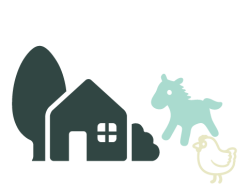
34% rural/remote communities
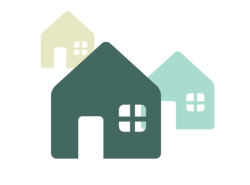
27% suburban communities
83% respondents AGREED/STRONGLY AGREED that the summit improved their understanding of Veteran Family mental health
86% respondents AGREED/STRONGLY AGREED that their own experiences were reflected during the summit

Atlas reach
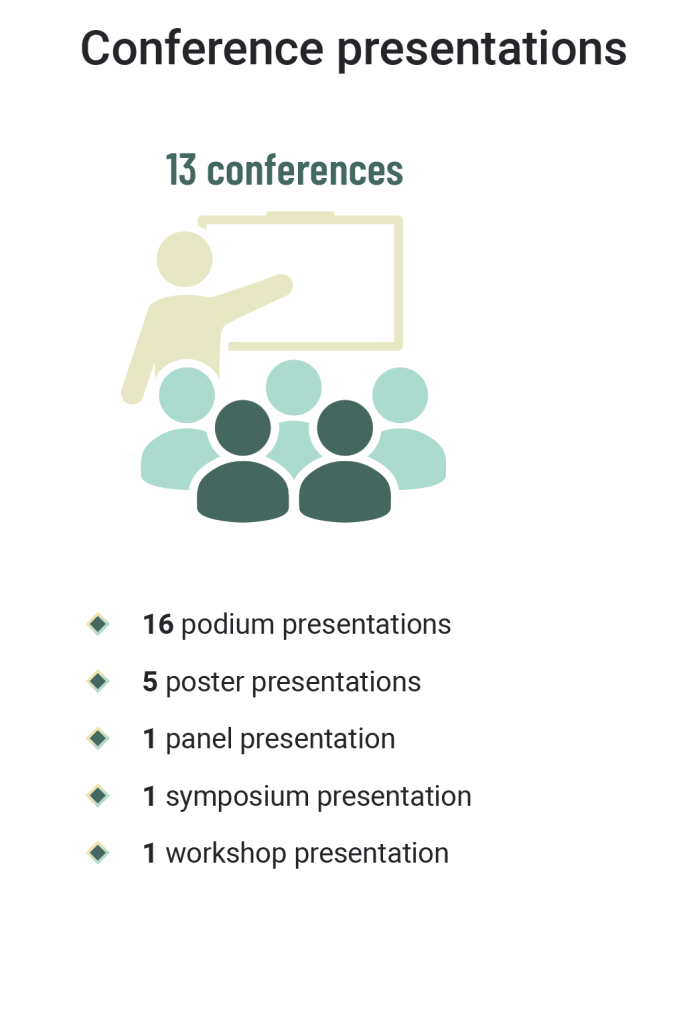
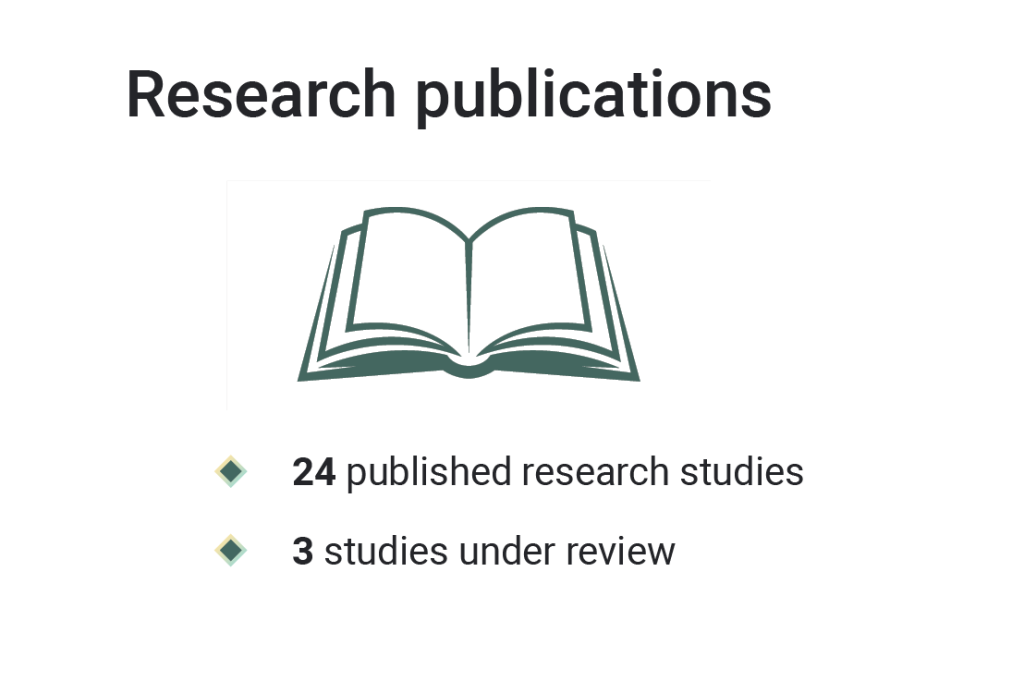
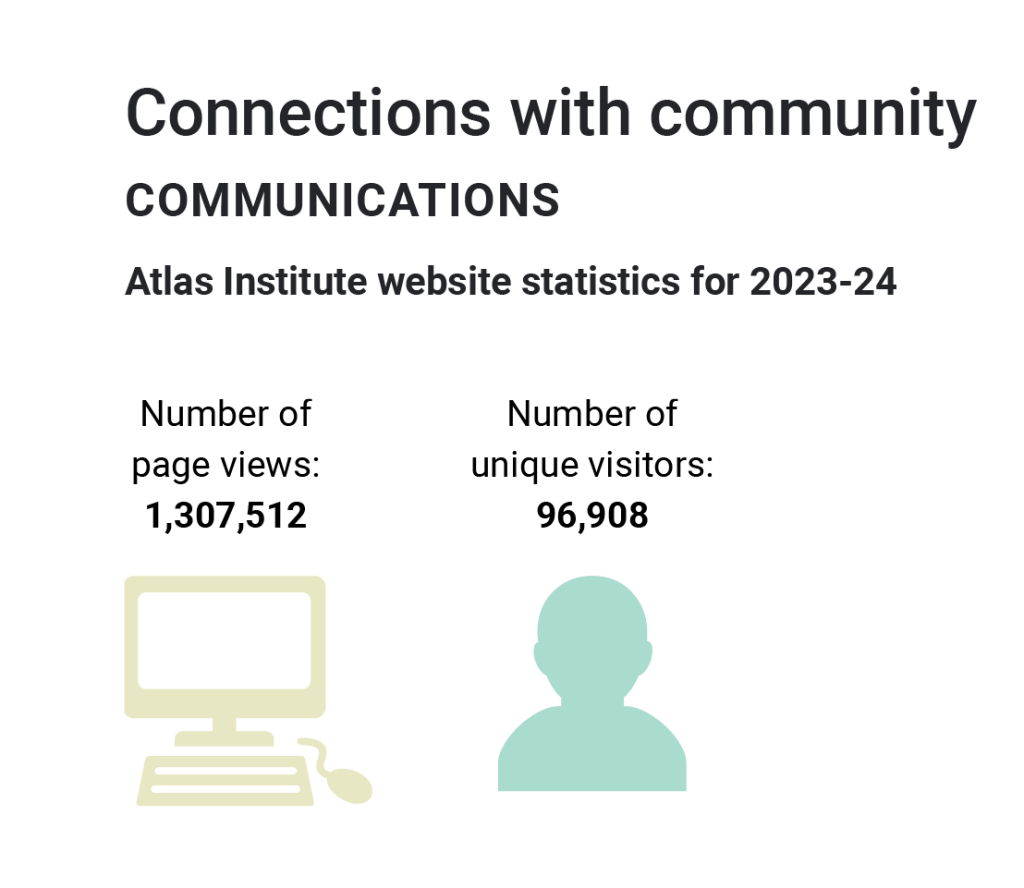

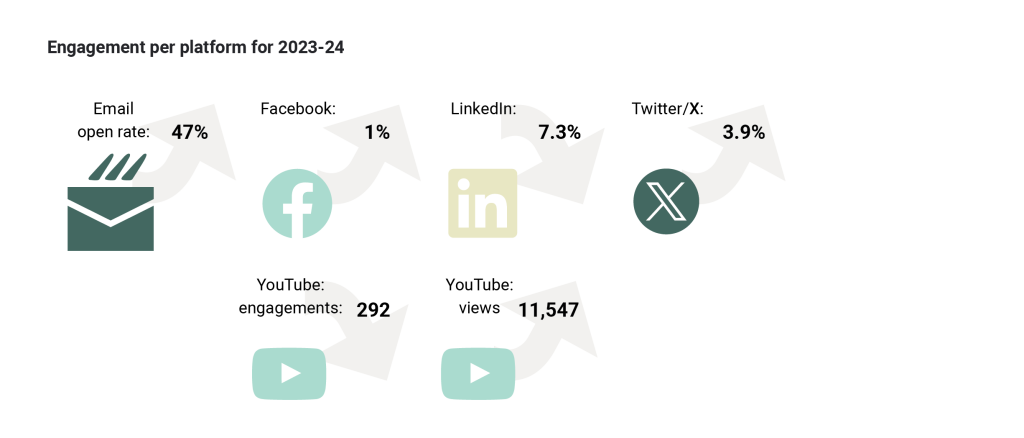
Mind Beyond the Mission podcast
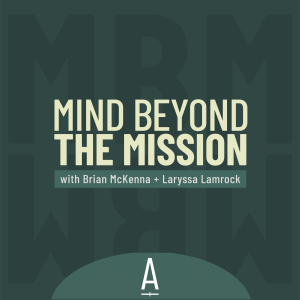
2,257 total podcast downloads in 2023-24 (up 255.4% from 635*). Episodes that were published in 2023-24 were downloaded 1,935 times during the fiscal year and previously published episodes were downloaded 322 times.
*The first episode was published in June 2022.
Downloads of podcast episodes released in 2023-24 (organized by downloads)
- Sex and posttraumatic stress injury with Dr. Candice Monson: 264 downloads
- Posttraumatic growth with RCMP Veteran Scott Anderson: 218 downloads
- Traumatic brain injury with Dr. Lyn Turkstra: 217 downloads
- Neurofeedback therapy with Andrew Nicholson, PhD: 204 downloads
- Overcoming loneliness: 189 downloads
- Traumatic brain injury with Veteran and CFL player Ryan Carey: 171 downloads
- Losing your life’s calling with Mark and Donna Campbell: 168 downloads
- Walking on eggshells: When does anger become problematic?: 148 downloads
- Kiev looks like Sarajevo with Scott Casey: 135 downloads
- Your own brand of courage with Andrew and Elizabeth Gough: 116 downloads
- ‘When am I his wife?’ Exploring compassion fatigue with Dr. J Don Richardson: 105 downloads
Perspectives blog
Views of posts published in 2023-24 (organized by views)
- Our stories matter: 846 views
- What Veterans have taught me about love: 716 views
- The sacred ground: 687 views
- A Force for women: 559 views
- Healthy enough to help: 477 views
- Communicating our way to a better place: 367 views
- Holding our breath: Creating a sacred space for remembrance: 344 views
- I love my job: 292 views
- Resilient foundations: 252 views
- Navigating the holidays: 251 views
- Inspiring inclusion: What this means to women Veterans: 111 views
National media coverage
- Healthing (Postmedia) — Neurofeedback, PTSD Awareness (June)
- Le Devoir — PTSD and fireworks
- Canadian Military Family Magazine — Suicide prevention resources launch
- Esprit de Corps — Suicide prevention resources launch
- CBC Radio: Ottawa Morning — Suicide prevention resources launch
- 580 CFRA: Ottawa at Work with Graham Richardson — Suicide prevention resources launch
Editorials
Canadian Forces Newspaper Association
- Remembrance
- Lived experience in research
Esprit de Corps
- Remembrance
- International Women’s Day
The Hill Times
- Modern-day Veterans: Changed faces, changed needs
Fardous Hosseiny (Remembrance Day) - Suicide prevention in military and RCMP communities — where do Families fit in?
Fardous Hosseiny and Laryssa Lamrock (March 15)